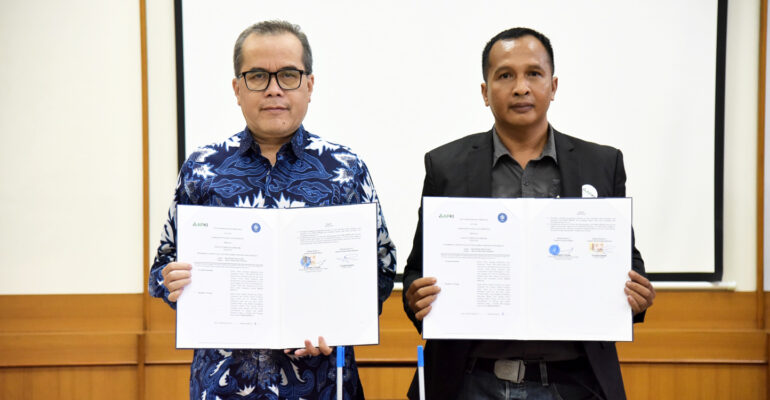IPB University agrees MoU with Indonesian Katuk Farmers Association

IPB University and the Indonesian Katuk Farmers Association (APKI) signed a memorandum of understanding (MoU). The board of APKI was received by the Vice Rector of IPB University for Global Connectivity, Collaboration, and Alumni Relations, Prof Iskandar Z Siregar. The MoU was held on Wednesday (28/11) at IPB Baranangsiang Campus, Bogor.
Chairman of the Central Executive Board (DPP) of APKI, Permadi Kusumah, SP expressed his gratitude and was honored to be able to establish cooperation with IPB University.
“APKI is one of the forums for Indonesian katuk farmers. We have a mission to build a scheme from upstream to downstream related to katuk plants,” he explained.
He said, katuk plants are no longer a foreign commodity. However, there are still many people who do not know the benefits of this plant, one of which is as an additional animal feed.
Through this collaboration, he asked for IPB University’s support to help socialize the benefits of katuk plants through research and innovation that IPB University has done.
“Hopefully APKI and IPB University can continue to work together in the field of agriculture, especially katuk plants. Hopefully innovations from IPB University can provide benefits for katuk farmers to be more prosperous,” he explained.
Vice Rector of IPB University for Global Connectivity, Collaboration and Alumni, Prof. Iskandar Z Siregar welcomed this cooperation. “The focus of our government today is food security. Integrated farming may be one way to improve the welfare of the people, we need to realize this,” he explained.
In addition, he added that the downstreaming of katuk plant products is very important to increase livestock productivity, one of which is for dairy farming commodities.
“This katuk plant through an integrated farming system can be juxtaposed with government programs such as the Free Nutritious Lunch. For this reason, it is very important to develop agriculture for the community,” he said. (AS/Rz) (IAAS/RUM)



